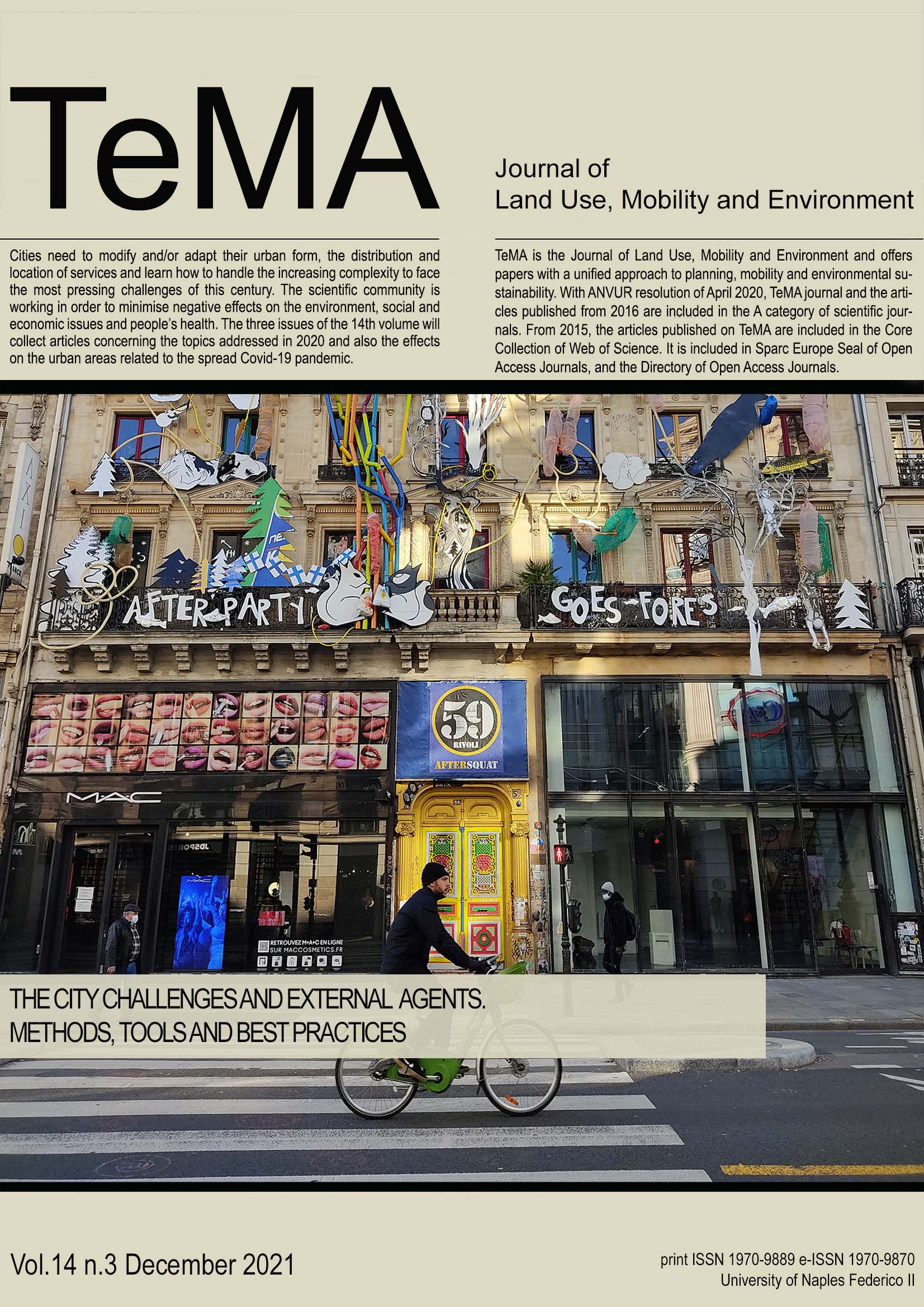Sustainable development in cities: a review of frameworks and indexes
DOI:
https://doi.org/10.6093/1970-9870/8312Keywords:
Urban sustainability, sustainability indexes, sustainability frameworkAbstract
Starting from the relationship between urban planning and mobility management, TeMA has gradually expanded the view of the covered topics, always following a rigorous scientific in-depth analysis. This section of the Journal, Review Notes, is the expression of a continuous updating of emerging topics concerning relationships among urban planning, mobility and environment, through a collection of short scientific papers. The Review Notes are made of four parts. Each section examines a specific aspect of the broader information storage within the main interests of TeMA Journal. In particular, the Economy, business and land use section aims at presenting recent advancements on relevant topics that underlie socio-economic relationships between firms and territories. The present note tries to clarify the concept of sustainable city from a practical perspective rather than from a theoretical one. It does that by describing some of the most widespread framework in defining urban sustainability.
Downloads
Downloads
Published
How to Cite
Issue
Section
License
Authors who publish in this journal agree to the following:
1. Authors retain the rights to their work and give in to the journal the right of first publication of the work simultaneously licensed under a Creative Commons License - Attribution that allows others to share the work indicating the authorship and the initial publication in this journal.
2. Authors can adhere to other agreements of non-exclusive license for the distribution of the published version of the work (ex. To deposit it in an institutional repository or to publish it in a monography), provided to indicate that the document was first published in this journal.
3. Authors can distribute their work online (ex. In institutional repositories or in their website) prior to and during the submission process, as it can lead to productive exchanges and it can increase the quotations of the published work (See The Effect of Open Access)


